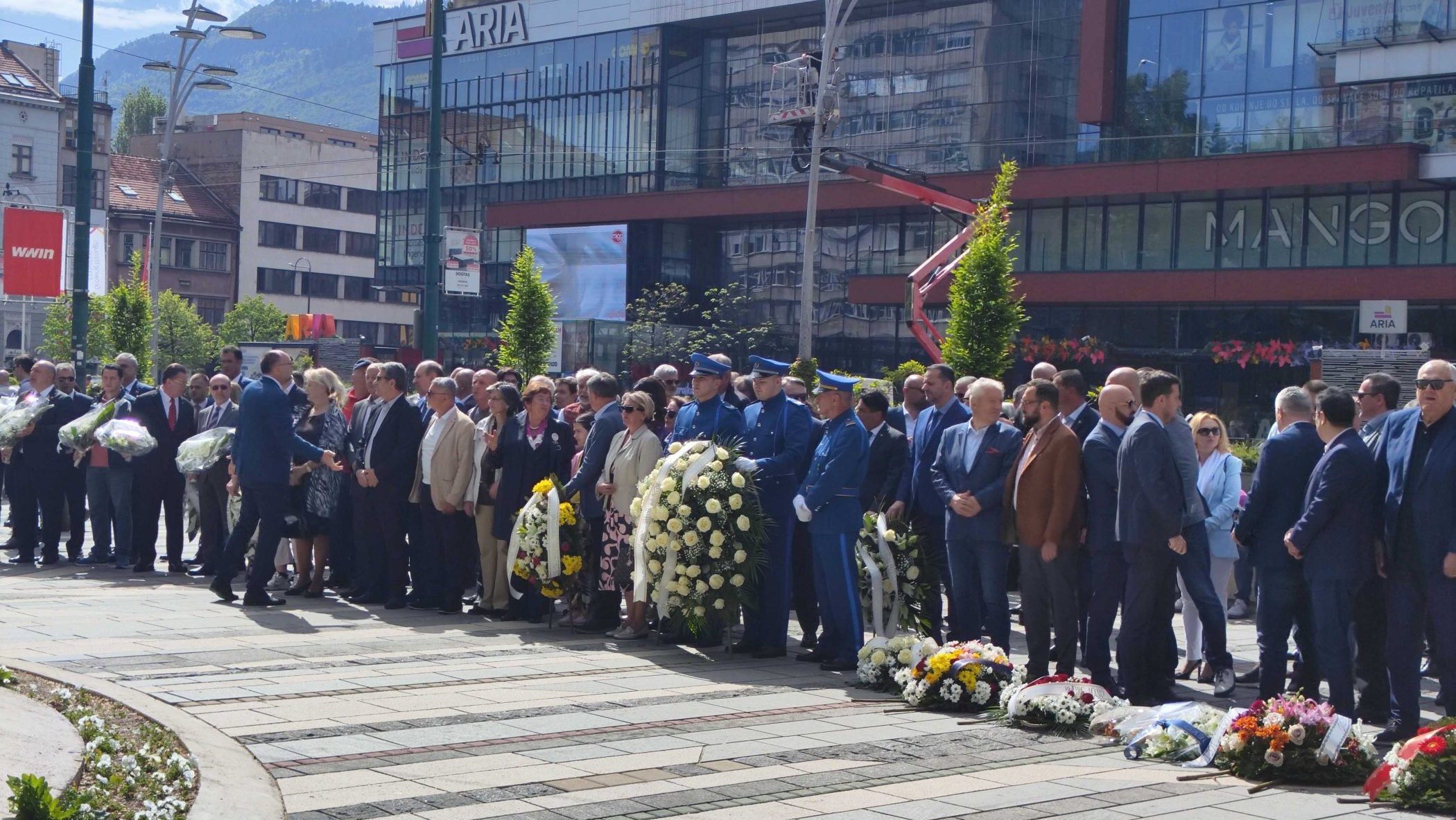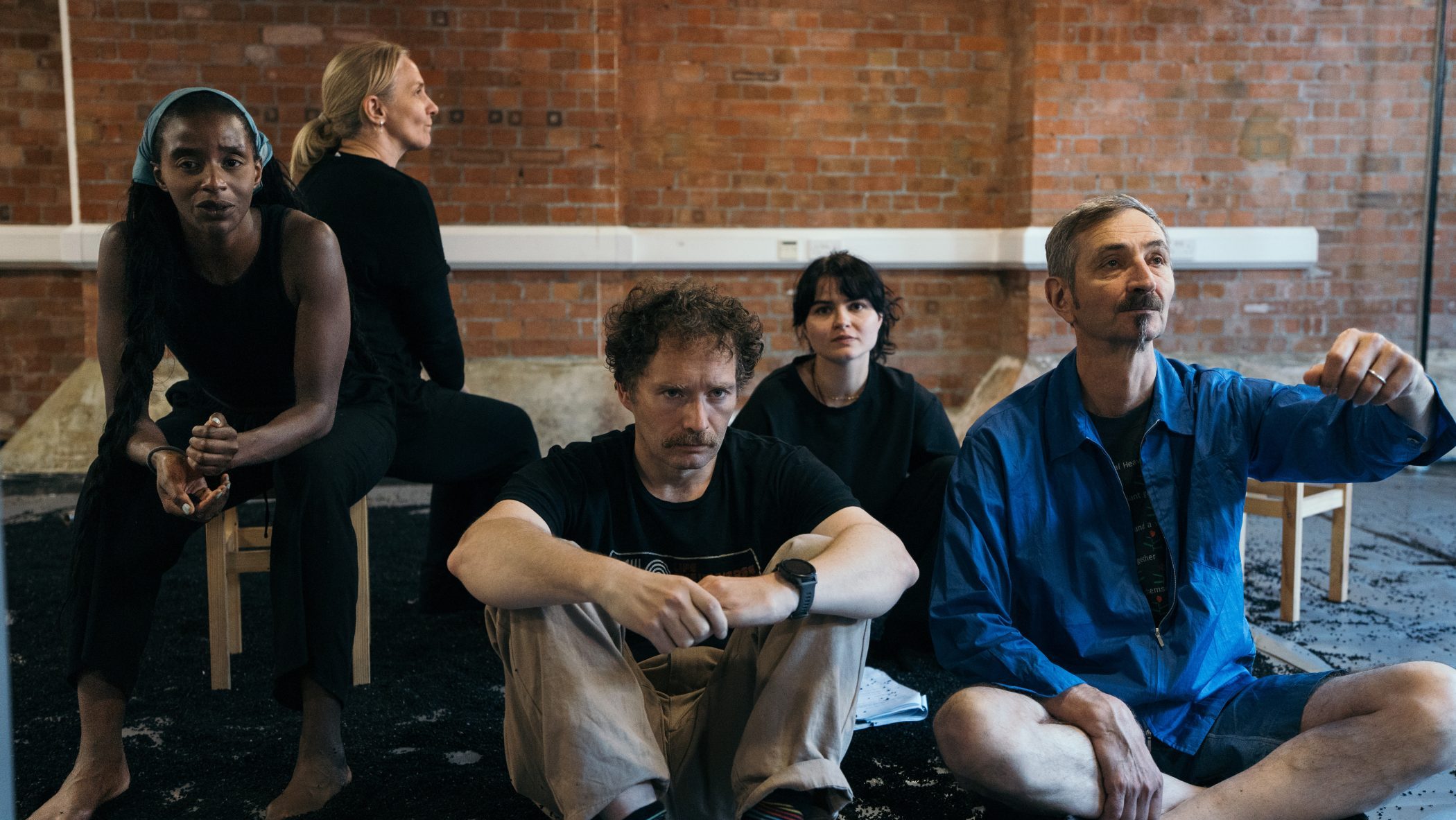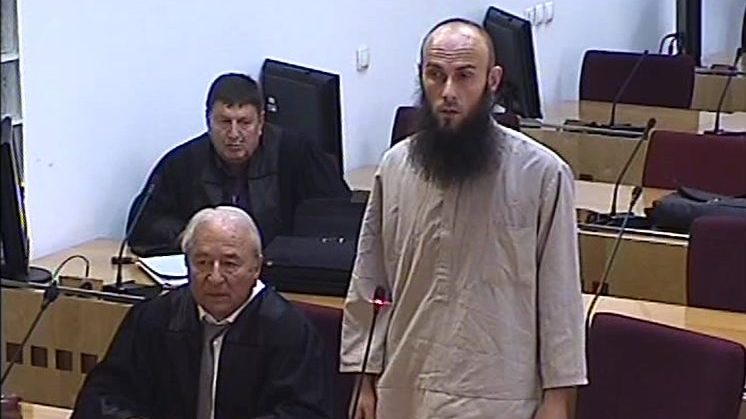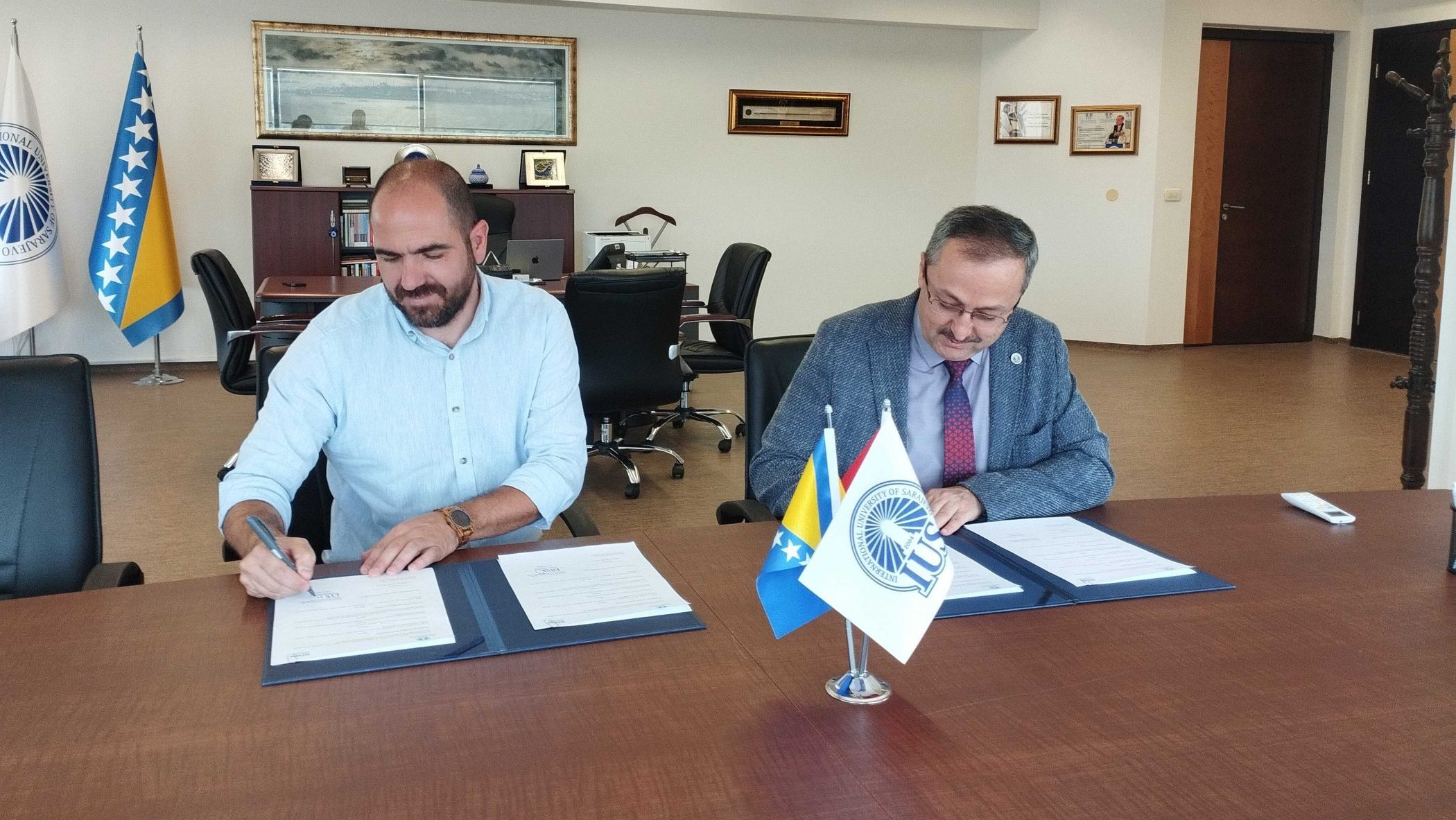This post is also available in: Bosnian
Flowers were laid on Monday at the Memorial to the Murdered Children of Besieged Sarajevo in the Bosnian capital, but relatives of the dead expressed anger that those directly responsible have managed to evade justice.
Hedija Efendic told BIRN at the memorial event that she will never forget August 18, 1992, when her 16-year-old son Amel was killed in the Sarajevo neighborhood of Dobrinja.
“There was a ceasefire that day. Like all the other children, he went out with his younger brother and neighborhood friends to ride their bikes. Then a shell was fired. He was the only one who died on the spot. Today, he would have been a grown man,” Efendic said.
For the parents, the sorrow can never be erased, she said.
“We want justice, we want to know more about who killed our children, who the direct perpetrators were,” she said.
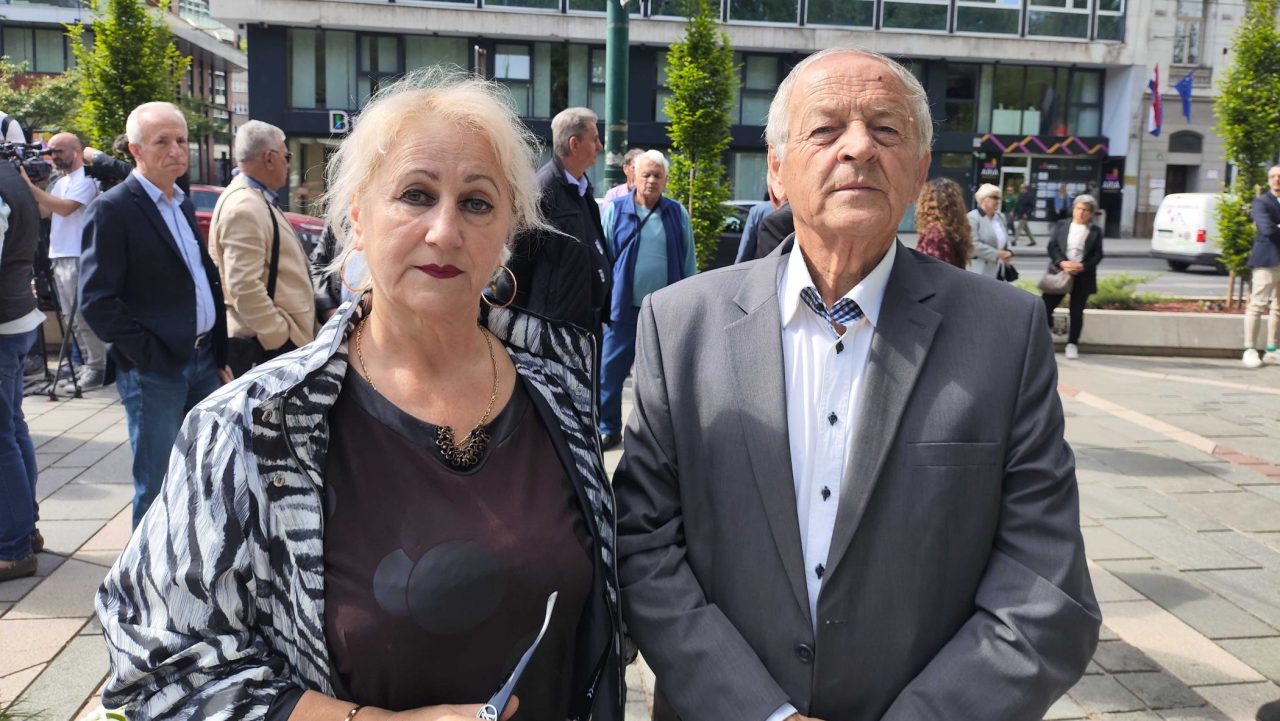
Hedija and Hamed Efendic, parents of murdered Amel. Photo: Detektor
Alija Hodzic lost his only daughter, Jasmina, during the war. She was killed in July 1993 when a shell fell under a bridge in Obhodja on the outskirts of Sarajevo, where she was playing in a makeshift pool.
“As the years go by, it gets harder and harder,“ Hodzic told BIRN.
During the 44 months of the siege of the Bosnian capital, according to the Association of Parents of Children Killed during the Siege of Sarajevo 1992-95, more than 11,000 Sarajevans lost their lives, including about 1,600 children.
The International Criminal Tribunal for the Former Yugoslavia (ICTY) found that civilians were attacked with sniper and artillery fire while they were working in their gardens, shopping at the market or cleaning city streets. They were shot at while attending funerals and while travelling in ambulances, trams, buses and on bicycles.
For a campaign of terror against civilians in Sarajevo, the ICTY sentenced wartime Bosnian Serb political and military leaders Radovan Karadzic and Ratko Mladic, as well as the commander of Bosnian Serb Army’s Sarajevo-Romanija Corps, Stanislav Galic, to life imprisonment. Another commander of the Sarajevo-Romanija Corps, Dragomir Milosevic, was sentenced to 29 years in prison.
Fikret Grabovica, president of the Association of Parents of Children Killed during the Siege of Sarajevo 1992-95, said it was important to teach the younger generation about what happened – “not so they can hate and take revenge, but to create their future in an appropriate way, so that such evil does not happen again”.
Grabovica said he is disappointed with the work of the state prosecution because there has not been a single indictment so far for the direct perpetrators of killings.
“The knowledge that there haven’t been any indictments is particularly difficult for parents,” he said.
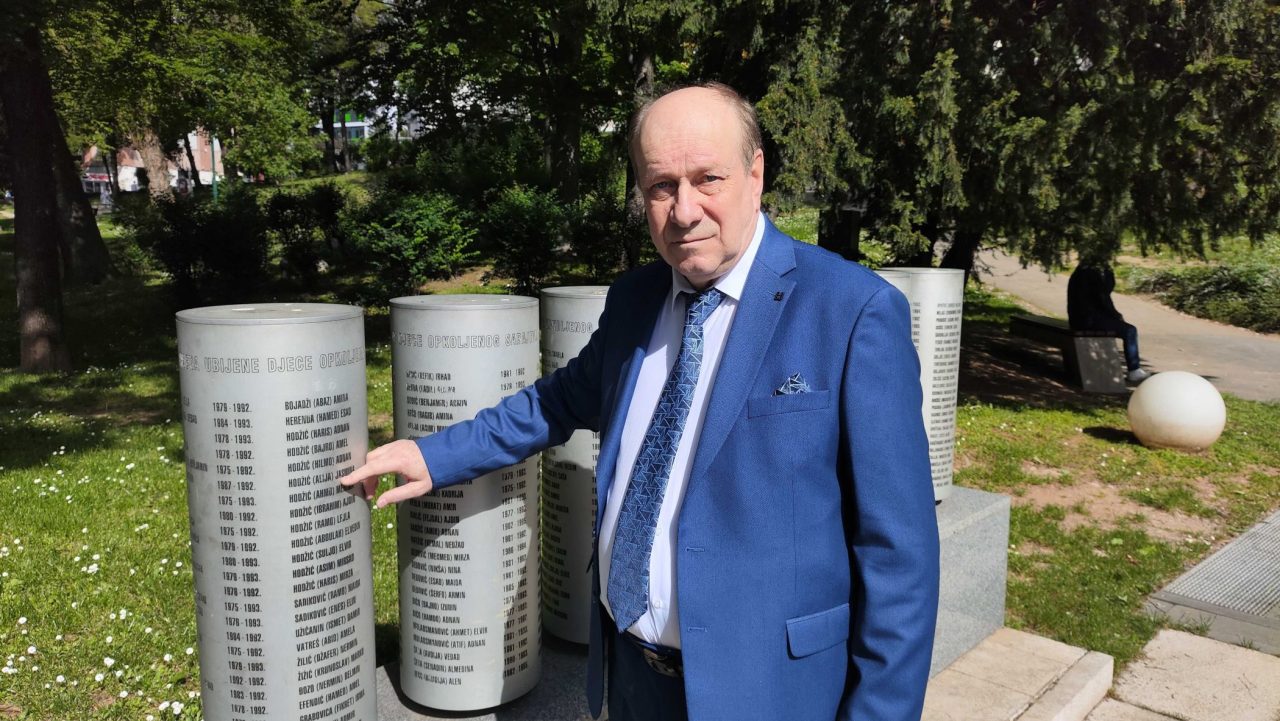
Alija Hodzic next to the monument where the name of his daughter is written. Photo: Detektor
Senida Karovic, president of the Union of Civilian War Victims of the Sarajevo Canton, believes that the evidence shown in the cases against Mladic, Karadzic, Milosevic and Galic could yield the names of hundreds of individuals who could be prosecuted for crimes committed against the civilian population of Sarajevo.
Karovic vowed to continue campaigning for justice for the victims of the siege.
“We will never get tired of telling the truth, because truth and justice have no alternative,” she said.
